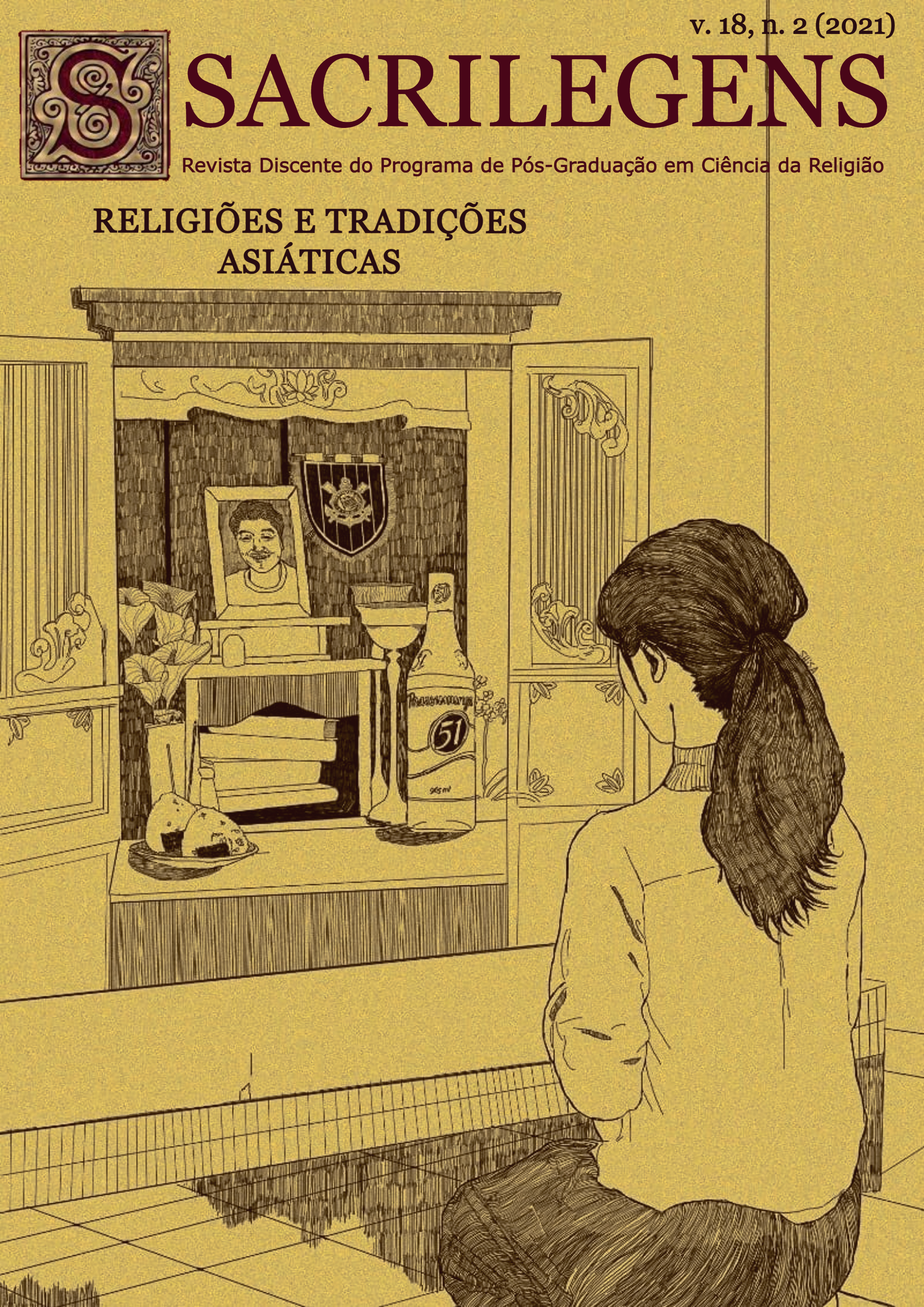“One without a second”: advaita vedanta's support to Parmenides' strict monism
DOI:
https://doi.org/10.34019/2237-6151.2021.v18.34861Keywords:
On Nature, Parmenides, Shankaracharya, monism, advaitaAbstract
The Unity of Being presented to the Western world by Parmenides in On Nature had a profound impact on subsequent philosophical thought, notably on Platonism and Neo-Platonism. Over the centuries, Parmenides' monism has been reinterpreted not in a strict sense, but as a unity in multiplicity, thus circumventing a paradox with the sensible world. Based on the uniformity of thought contained in On Nature, I intend to reinforce the strict character of the monism contained in the poem, using Advaita (literally “not two”, in Sanskrit) philosophy to sustain and deepen the original Parmedean vision, free from the apparent contradictions between one and multiple.
Downloads
References
ANTISERI D., REALE G. Filosofia: Antiguidade e Idade Média (Volume 1). Paulus Editora; 1ª edição, 2017.
ARISTÓTELES. Metafísica. Aristóteles. Tradução de Vincenzo Cocco. São Paulo: Abril Cultural, 1973.
CARVALHO, BS. Similaridades entre a tradição upanichádica e a filosofia grega antiga. Sacrilegens. v. 9 n. 2 (2012).
CHATTERJEE S., DATTA D. An Introduction to Indian Philosophy Rupa Publications Private Limited; 20th edition, 2012.
CHATURVEDI S. Atma Bodha By Shankaracharya: Knowledge of the Self. Independently Published, 2019.
CORDERO NL. Parmenides, Venerable and Awesome. Plato, Theaetetus 183e: Proceedings of the International Symposium, 2012.
DUGAN KP., TRABBIC JG. Understanding Parmenides as a Numerical Monist: A Comparative Study. Proquest, Umi Dissertation Publishing, 2011.
DUMAN M. Reflections on Parmenides’ Monism, 2012.
GAMBHIRANANDA S. Bhagavad Gita: With the commentary of Shankaracharya. Advaita Ashrama, 1984.
JONES RH. Early Advaita Vedanta Philosophy, Volume 1: Plain English Translations of the Gaudapada-karikas With a Summary of Shankara’s Commentary. Jackson Square Books; 1ª edição, 2014.
MADHAVANANDA S. Brihadaranyaka Upanishad: with the Commentary of Shankaracharya. Advaita Ashrama. 1950.
MAHARISHI, R. Who am I? Sri Ramana Ashram. 2008
MENON YK. The Mind of Adi Shankaracharya. Jaico Publishing House. Jaico Publishing House; 8ª edição, 2015.
OLDMEADOW H. Sankara's Doctrine of Maya. Asian Philosophy (Nottingham) 2:2, 1992.
PRABHAVANANDA S. The Upanishads: Breath of the Eternal. Vedanta Press & Bookshop; Second edição,1975.
RAMAMOORTHY H. Ribhu Gita: English Translation from the Original Sanskrit Epic Sivarahasyam. Society of Abidance in Truth, 2017.
SANTOS, JT. Da natureza. Edições Loyola; 2ª edição, 2002.
SHANKARACHARYA. Viveka-Chudamani - A Jóia Suprema da Sabedoria. Editora Teosófica; 2º edição, 2019.
SILVEIRA DS., BRÍGIDO E. O Uno E A Díade De Platão Segundo Giovanni Reale. Ano 10 - n. 20 - jan-jun de 2016
SOARS, D. ‘I Am that I Am’ (Ex. 3.14): from Augustine to Abhishiktānanda—Holy Ground Between Neoplatonism and Advaita Vedānta. SOPHIA (2020). https://doi.org/10.1007/s11841-020-00774-9
VIMUKTANANDA. Aparokshanubhuti: Or Self-Realization of Sri Sankaracharya: Of Sri Shankaracharya. Vedanta Pr., 1997.
Downloads
Published
How to Cite
Issue
Section
License
Copyright (c) 2022 Rafael Varella

This work is licensed under a Creative Commons Attribution 4.0 International License.
 Sacrilegens is licensed under a Creative Commons Attribution 4.0 International License.
Sacrilegens is licensed under a Creative Commons Attribution 4.0 International License.










